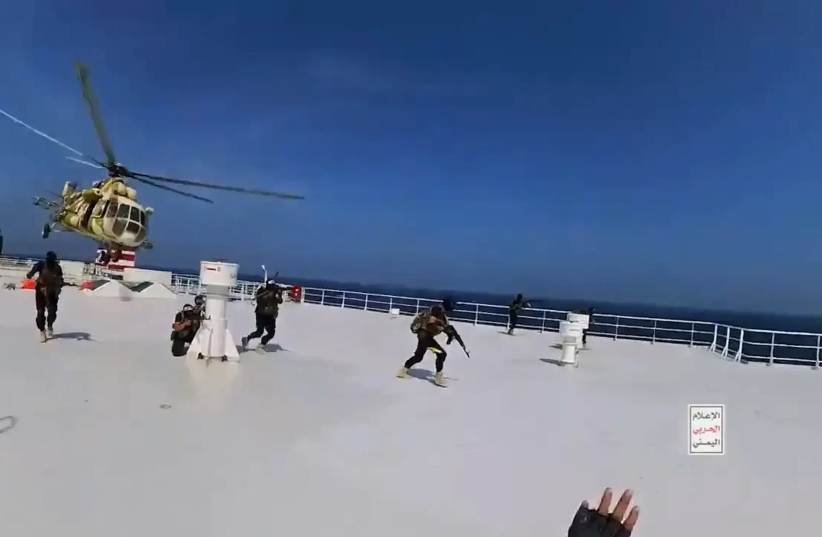The United Nations fears that a US decision to return Yemen's Houthi rebels to a list of terrorist groups could harm the war-torn country's economy, particularly commercial imports of essential items, a senior UN aid official said on Wednesday.
The US move, announced last month, takes effect on Friday and hits the Iran-aligned group with harsh sanctions that aim to cut off funding and weapons the Houthis have used in their stepped-up attacks on ships in vital Red Sea shipping lanes.
The UN aid operations director, Edem Wosornu, said that while the humanitarian community was concerned about "any potential adverse effects," she noted that Washington had issued exemptions aimed at lessening the impact on civilians in Yemen, where the UN says more than 18 million people need help.
"Nevertheless, we fear there may be an effect on the economy, including commercial imports of essential items on which the people of Yemen depend on more than ever," Wosornu told the UN Security Council.
"Humanitarian aid cannot make up for gaps in the supply of commercial goods. Such effects may reverberate across the country. Yemen's already fragile economy cannot handle any further major shocks," she said.

Yemen mired in conflict
Yemen has been mired in conflict since Houthis ousted the government from the capital Sanaa in late 2014. The Saudi Arabia-led military coalition intervened in 2015, aiming to restore the government.
But in recent months the Houthis have been attacking ships in and around the Red Sea, saying they are acting in solidarity with Palestinians in Gaza. It has disrupted global commerce, stoked fears of inflation and deepened concern that fallout from the Israel-Hamas war could destabilize the Middle East.
Wosornu said that transport costs to Yemen's Hodeidah and Aden ports had "significantly increased since November due to the ongoing hostilities."
"The World Food Programme has reported increases of up to 110% for containerized shipments to Yemen. Other humanitarian organizations have seen freight rate increases of up to 318%," she told the council.
The United States and Britain have carried out strikes against the Houthis in Yemen in a bid to stop the ship attacks, describing the measures as necessary and proportionate and justified as self-defense.
On the US decision to relist the Houthis as a terrorist group, deputy US Ambassador to the UN Robert Wood said: "The United States seeks to narrowly target the Houthis' terrorist activities, while mitigating any humanitarian harm on the people of Yemen, who deserve the chance for a better future."
